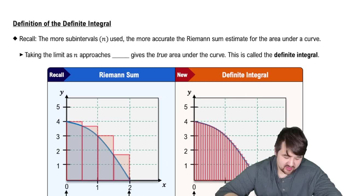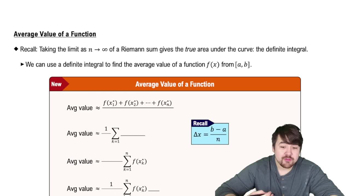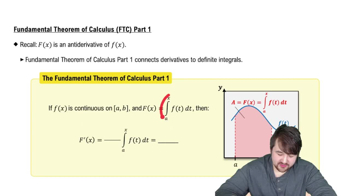Use analytical methods and/or a graphing utility to identify the vertical asymptotes (if any) of the following functions.
f(x)=1/ √x sec x
 Verified step by step guidance
Verified step by step guidance Verified video answer for a similar problem:
Verified video answer for a similar problem:



 6:47m
6:47mMaster Finding Limits Numerically and Graphically with a bite sized video explanation from Patrick
Start learning